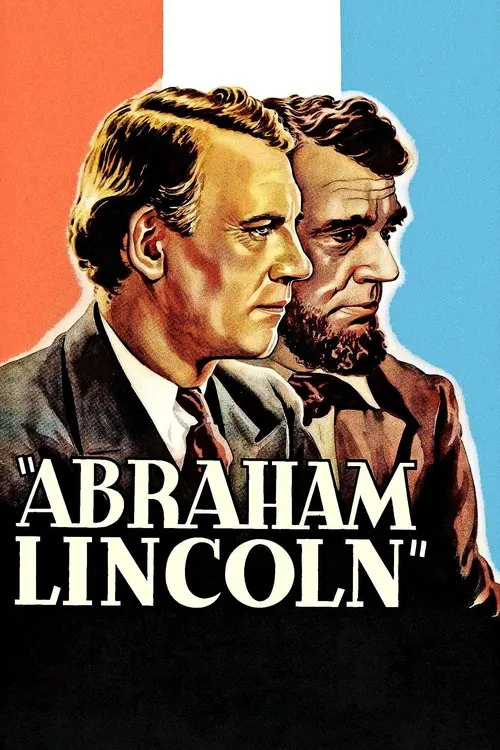Abraham Lincoln

Plot
Abraham Lincoln: a man of unwavering resolve and unshakeable determination. The 16th President of the United States, he would lead the nation through its greatest trial, the Civil War. Yet, before he ascended to the highest office in the land, Lincoln's life was a tapestry of love, loss, and struggle. The film opens with a poignant portrayal of Lincoln's early romance with Ann Rutledge, the beautiful daughter of a fellow lawyer and merchant. The two would meet while studying law together in Springfield, and their innocent affection for one another would blossom into something more profound. However, tragedy would strike when Ann falls ill and eventually passes away, leaving Lincoln heartbroken. This early loss would leave an indelible mark on Lincoln's psyche, tempering his optimism with a deep understanding of the transience of human life. As the years passed, Lincoln's resolve to succeed in law grew stronger. He would eventually find his footing as a country lawyer, winning small cases and establishing a reputation as a diligent and intelligent legal mind. It was during this period that he would meet Mary Todd, the vivacious and spirited daughter of a respected Southern family. Their courtship would be marked by the intensity of their feelings for one another, as well as the significant cultural differences that threatened to keep them apart. Lincoln and Mary's marriage would be a tumultuous one, filled with the passions and contradictions that would soon define the tumultuous times they lived through. She would provide a stabilizing influence on his life, yet her own fiery temperament would sometimes clash with Lincoln's measured, even-keel approach. Their union would yield a total of four children, each of whom would bring joy and heartache to the family. As Lincoln's reputation as a lawyer grew, so too did his involvement in politics. He would enter the arena as a stalwart supporter of the Republican Party, advocating for the abolition of slavery and the protection of the Union. The pivotal moment in his early career came when he accepted the challenge from Stephen A. Douglas, a formidable Democratic opponent, to engage in a series of debates that would span Illinois. These debates would showcase Lincoln's remarkable rhetorical skills, as he effortlessly wove a complex narrative around the themes of liberty and freedom. The year 1860 saw Lincoln catapult onto the national stage, as the Republicans nominated him for the presidency. He would go on to win the election, despite the deep divisions that ravaged the nation. As he prepared to take office, Lincoln delivered his inaugural address, a masterful speech that tempered the nation's anxieties with optimism and hope. The Civil War loomed large on Lincoln's horizon, and he would throw himself into the fray with unwavering commitment. His leadership during the conflict would be marked by his willingness to compromise and his determination to preserve the Union at any cost. The Emancipation Proclamation, issued in 1863, would mark a significant turn in the war, as Lincoln declared all slaves in Confederate territory to be free. Throughout the years of bloody conflict, Lincoln remained steadfast, his character tempered by the fire of experience. He would face numerous challenges, from military setbacks to public backlash, yet he would always emerge unbroken. This unwavering resolve would serve as a beacon of hope for the nation, guiding it through the darkest moments of its history. Ultimately, Lincoln's life would be cut short by an assassin's bullet, fired in the darkness of Ford's Theater on a fateful April evening in 1865. The world would be left reeling from this tragic loss, but the legacy of Abraham Lincoln would endure. His unwavering commitment to the principles of liberty and equality would inspire generations to come, shaping the course of American history and cementing his place as one of the nation's greatest leaders.
Reviews
Recommendations




